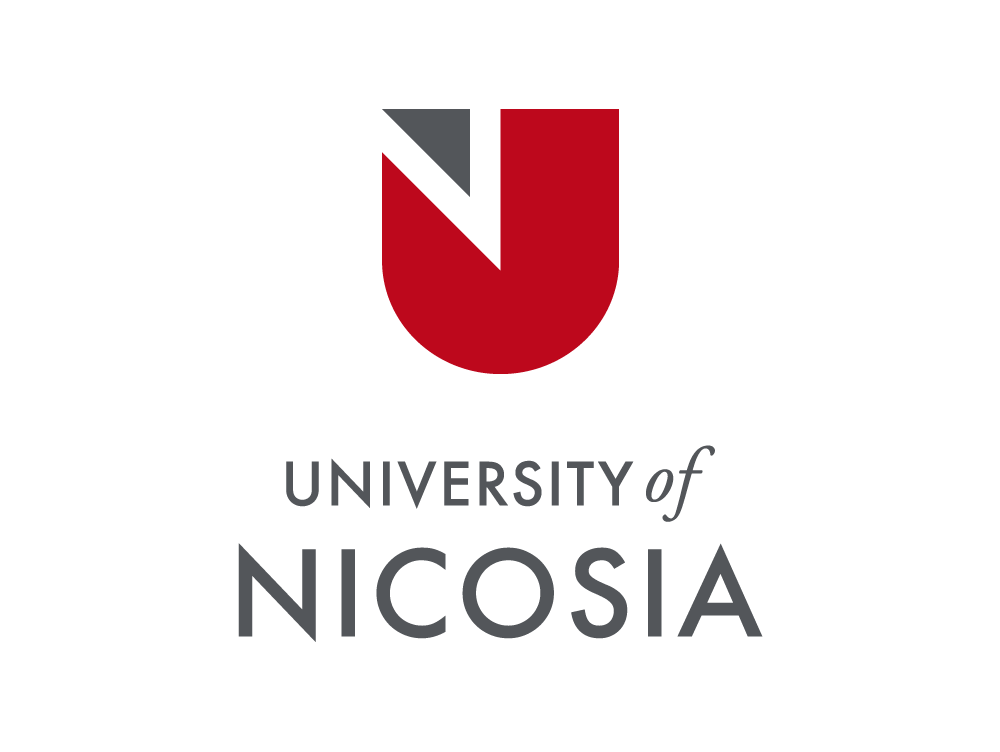Course Summary
Aims
The aims of the MSc in Electrical Engineering are to:
- Prepare students to succeed in a constantly growing, highly demanding and competitive technological world;
- Create an academic environment conducive to learning new technologies and engineering concepts;
- Introduce students to research on advanced engineering topics;
- Cultivate analytical skills and critical thinking;
- Provide specialization and extensive knowledge on the areas of concentration;
- Promote engineering ethics and moral practices.
Objectives
The objectives of the programme are to:
- Provide specialized advanced knowledge and tools to our graduates in order to cope successfully in a technologically challenging environment;
- Facilitate learning in areas of electrical engineering that are directly linked to industry and current state-of-the-art technology;
- Provide the theoretical and computational skills necessary for the solution of both theoretical and practical engineering problems;
- Provide practical and experimental hands-on experience that allows the students to link directly to fundamental knowledge and theory;
- Prepare graduates to work alone or in groups in order to provide engineering solutions;
- Prepare graduates to design/implement systems and processes towards the solution of engineering problems;
- Promote research, develop research skills and provide fundamental knowledge to support a successful career in research and development;
- Develop the ability of the graduates to write technical reports and scientific papers as well as to present their work before an audience;
- Provide the graduates with the opportunity to develop a greater technical competence in their area and become successful professionals throughout their lifetime;
- Prepare graduates for admission to a PhD program in electrical engineering.
Career Prospects
Graduates of the Masters’ programme can be employed in a number of sectors including:
- Private companies;
- Public organizations;
- Semi-government organizations;
- Universities and colleges;
- Research institutions;
- Technical high schools and professional training schools;
- Telecommunications companies;
- Army, navy, and defense companies;
- Radar and monitoring system facilities
Modules
Section: A – Core Requirements
Min. ECTS Credits: 48 Max. ECTS Credits: 48
Notes:
| Course Code |
Course Title |
ECTS Credits |
| ECE-532 |
Probability and Random Processes |
8 |
| ECE-544 |
Antennas for Wireless Communications |
8 |
| ECE-546 |
Fiber Optics |
8 |
| ECE-552 |
Digital Communications |
8 |
| ECE-566 |
Electric Power Generation, Transmission and Distribution |
8 |
| ECE-567 |
Renewable Energy Sources and Technologies |
8 |
Section: B – Signal Processing and Communications
Min. ECTS Credits: 0 Max. ECTS Credits: 40
Notes: ECE-593 may also be included in this section.
| Course Code |
Course Title |
ECTS Credits |
| ECE-524 |
Advanced Computer Networks |
8 |
| ECE-526 |
Optical Networks |
8 |
| ECE-530 |
Adaptive Signal Processing |
8 |
| ECE-533 |
Detection and Estimation Theory |
8 |
| ECE-534 |
Neural Networks and Fuzzy Logic |
8 |
| ECE-535 |
Speech Processing |
8 |
| ECE-536 |
Digital Image Processing |
8 |
| ECE-550 |
Information Theory |
8 |
| ECE-553 |
Communications Management |
8 |
| ECE-554 |
Wireless Communications |
8 |
| ECE-556 |
Satellite Communications Systems |
8 |
Section: C – Electromagnetics, Antennas and Microwave Engineering
Min. ECTS Credits: 0 Max. ECTS Credits: 40
Notes: ECE-593, ECE-554 and ECE-556 may also be included in this section.
| Course Code |
Course Title |
ECTS Credits |
| ECE-540 |
Microwave Circuits |
8 |
| ECE-541 |
RF Circuit Design |
8 |
| ECE-542 |
Electromagnetic Waves and Guided Structures |
8 |
| ECE-543 |
Electromagnetic Compatibility/Electromagnetic Interference |
8 |
| ECE-545 |
Applied Electromagnetics |
8 |
| ECE-547 |
Computational Methods in Electromagnetics |
8 |
Section: D – Renewable Energy Sources and Power Systems
Min. ECTS Credits: 0 Max. ECTS Credits: 40
Notes: ECE-593 may also be included in this section.
| Course Code |
Course Title |
ECTS Credits |
| ECE-561 |
Photovoltaics |
8 |
| ECE-562 |
Power Electronics |
8 |
| ECE-563 |
Smart Power Grid Management |
8 |
| ECE-565 |
Wind Energy Technology |
8 |
| ECE-568 |
Power System Protection |
8 |
| ECE-569 |
Electrical Design, Planning and Regulations |
8 |
Section: E – VLSI and Embedded Systems
Min. ECTS Credits: 0 Max. ECTS Credits: 40
Notes: ECE-593 may also be included in this section.
| Course Code |
Course Title |
ECTS Credits |
| ECE-520 |
Introduction to VLSI Design |
8 |
| ECE-521 |
Fault Tolerant Computing |
8 |
| ECE-522 |
Advanced Computer Architecture |
8 |
| ECE-523 |
Testing and Diagnosis for VLSI Systems and Circuits |
8 |
| ECE-525 |
Computer Aided Design for VLSI |
8 |
| ECE-527 |
Electronic Properties of Materials |
8 |
| ECE-528 |
Embedded Systems |
8 |
Section: F – Seminars, Thesis and Special Topics
Min. ECTS Credits: 2 Max. ECTS Credits: 34
Notes:
| Course Code |
Course Title |
ECTS Credits |
| ECE-590 |
Graduate Seminars |
2 |
| ECE-591A |
Thesis Research I |
6 |
| ECE-591B |
Thesis Research II |
6 |
| ECE-591C |
Thesis Research III |
12 |
| ECE-593 |
Special Topics in Electrical Engineering |
8 |
Assessment Method
Course assessment usually comprises of a comprehensive final exam and continuous assessment. Continuous assessment can include amongst others, midterms, projects, and class participation.
Letter grades are calculated based on the weight of the final exam and the continuous assessment and the actual numerical marks obtained in these two assessment components. Based on the course grades the student’s semester grade point average (GPA) and cumulative point average (CPA) are calculated.
How to apply
Students come to UNIC from around the world, blending a diverse range of academic backgrounds, experiences, interests, talents and cultural heritage.
Admission to our University is granted under different categories, depending on the student’s qualifications and educational objectives.
Our general admissions policy relies on the student’s previous academic performance, including their high school grades. The Medical School has separate admissions policies and procedures outlined on the Medical School website.
Admission Requirements
The minimum admission requirement is a recognized High School Leaving Certificate (HSLC). Students with a lower HSLC grade than 7.5/10 or 15/20 or equivalent, depending on the grading system of the country issuing the HSLC, are provided with extra academic guidance and monitoring during the first year of their studies. Some programmes have higher entry requirements
Apply
Application deadline
Students may begin their studies in September or February. Applications must reach the Office of Admissions together with all the required documents by:
| Studies from |
Deadline |
| Fall Semester (September to January) |
Late June |
| Spring Semester (February to May) |
Late October |
| Summer Session (June to July) |
Late February |
| Application Deadlines for European and Local students |
Please call the Office of Admissions on +357 22841528 |
06/30/2021
Entry requirements
Qualification requirements
- Completed Application Form
- A copy of your passport (page with your personal details and photo)
- Academic Records (True copy of the original)
- For Bachelors Degree applicants: High School Leaving Certificate and mark sheet
- For Masters Degree applicants: Bachelors Degree and transcripts
- For Doctorate applicants: Bachelors and Masters Degree, including transcripts
- Two Letters of recommendation/reference from professors or employers (for Masters and Doctorate applicants only). Certain programmes have additional requirements
- Curriculum Vitae–CV (for Masters and Doctorate applicants only)
- Personal Statement (for Masters and Doctorate applicants only)
- Research proposal (for Doctorate applicants only)
- Evidence of work experience (where applicable)
- Portfolio (for selected programmes of study)
Additional entry requirements
English language requirements
The table below provides the minimum English Language Requirements (ELR) for enrollment on a programme of study offered in English. Students who do not possess any of the qualifications or stipulated grades listed below and hold IELTS with 4.5 and above, are required to take UNIC’s NEPTON English Placement Test (with no charge) and will receive English Language support classes, if and as needed, from UNIC’s International Gateway Centre (IGC).
| English Qualification |
ELR Equivalent to IELTS 6 |
| TOEFL |
525 and above |
| Computer-based TOEFL |
193 and above |
| Internet-based TOEFL |
80 and above |
| IELTS |
6 and above |
| Cambridge Exams (First Certificate) |
B and above |
| Cambridge Exams (Proficiency Certificate) |
C and above |
| GCSE English Language 'O' Level or IGCSE |
C and above |
| Michigan Examination of Proficiency in English (CaMLA) |
Pass |
| Pearson PTE General |
Level 3 and above |
| KPG (The Greek Foreign Language Examinations for the State Certificate of Language Proficiency) |
Level B2 and above |
| Anglia |
Level B2 and above |
| IEB Advanced Programme English |
Pass |
| Examination for the Certificate of Proficiency in English (ECPE) Michigan Language Assessment by: Cambridge Assessment English & University of Michigan |
650 average score for ALL skills and above |
Master students satisfy the English requirements if their first degree was taught in English. Otherwise, they would need to present a minimum TOEFL score of 550 paper-based or 213 computer-based, GCSE “O” Level or IGCSE with minimum “C”, IELTS with a score of 6.5, or a score placement at the ENGL- 100 level of UNIC’s NEPTON. The University offers English courses at various levels to help students reach the required standard for admission to a graduate programme.
Fees and funding
Application Fees
No enrolments for current semester.
Additional Fee information
|
OTHER FEES
|
ON-CAMPUS PROGRAMMES
|
ONLINE/DL PROGRAMMES
|
|
Application fee (one-off/nonrefundable payment)
|
55
|
55
|
|
Visa application (one-off/nonrefundable payment)
|
86
|
0
|
|
Registration fee (per semester)
|
26
|
0
|
|
Health & accident insurance (per year)
|
175
|
0
|
|
Student activities fee (per semester)
|
20
|
0
|
|
Technology fee – Internet use etc. (per semester)
|
15
|
0
|
|
International student guarantee (one-off / refundable payment)
|
400
|
0
|
|
Transcript fee (per copy)
|
5
|
5
|
|
Evaluation fee (transfer credits / ECTS)
|
52
|
52
|
|
Second exam fee (per course)
|
65
|
65
|
|
Graduation application fee
|
60
|
60
|
|
Total
|
959
|
273
|
Provider information
Main Contact
46 Makedonitissas Avenue, CY-2417

